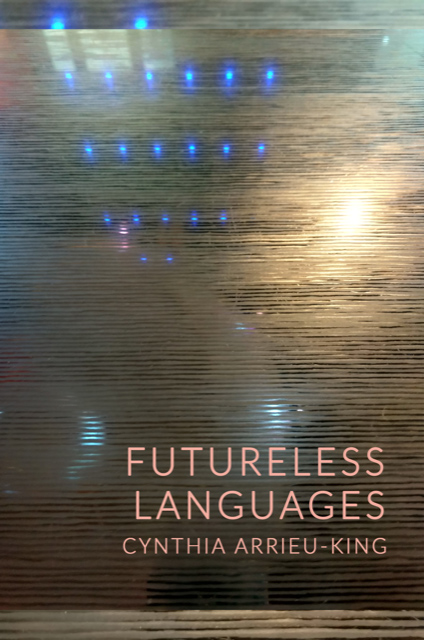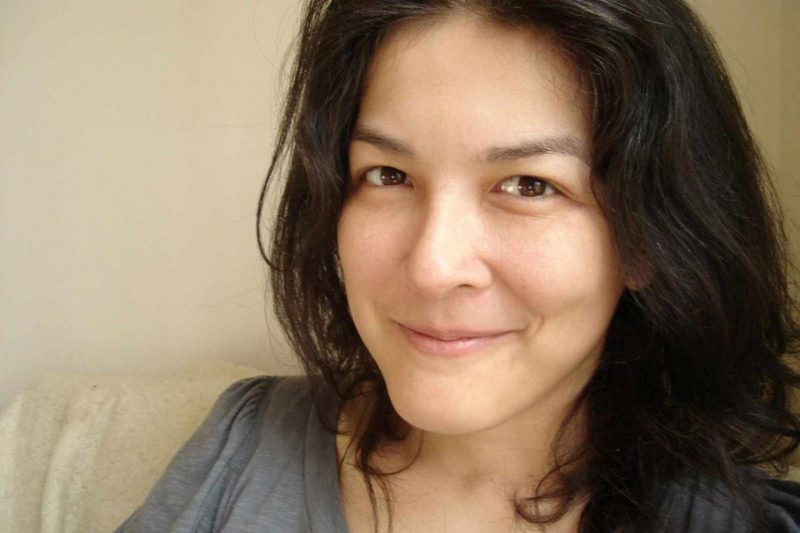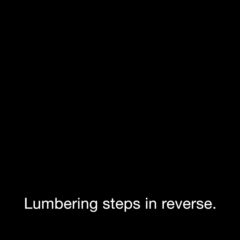
Futureless Languages, Cynthia Arrieu-King’s new book of poetry, imagines language in response to the real possibility of human futurelessness — what language says and does as well as what it does not say. Throughout, there is an ambient texture of notice and attentiveness. Small daily encounters resonate with meaning and implications beyond themselves. Arrieu-King acknowledges a present sense of loss or diffusion of meaning, a sense of being adrift in a history where it is likely, if not inevitable, that there may not be a future. That is not to say Futureless Languages is a frantic or urgent feeling book. The pacing is quiet. The specimens feel carefully gathered and arranged like clues.
Reckoning with the truth
The first poem opens “It seemed endless and then / it didn’t disappear but / there was no way to / look it in the face.” Like other poems in Futureless Languages, this one hints at the difficulty of art to reckon with a truth. It hints at poems and thoughts that may be outside or beyond the text. “Every time I watch the news I delete a few more poems.” A friend is detained “Because she told the truth somewhere.” There seems to be a cloudiness or haze through which images and moments appear like revelations. Small pieces in a day speak out, speak about. They are not quite metaphors, but they are indicators, placeholders. They say with heaviness, with struggle.
Yet the barrier for entry into the text is low. Daily interactions and overheard language show up as echoes of the psychic pressures of a political reality that may pass or punish the author depending on perceptions of whiteness — which already punishes migrants, and which may, at some moment tip into an irrevocable loss of future for humanity.
The book takes its title and central theme from the juxtaposition of existing models of futureless languages. In one model, smokers who are trying to quit, but say “I am not a smoker” are more able to quit. They speak into existence by collapsing intent and achievement. In another model, cultures which do not have a future tense in their language “don’t especially prepare for their future selves.” In other words, to be futureless could break both ways. “Futureless: You still eat pizza/ if you’re going to die. You answer the phone. Well, / maybe not.”
Comfort and solidarity
The language itself is not dense, however the collage of moments; the shifting of scenes, speakers, and images can provide knots of sense for the reader to tangle with as they are finding their way in the text. These slow a reader down and make a reader really examine what their own associations and values are. At times the meaning is a collaborative construction between author and reader. And yet these moments that foreground separation, isolation, and an incommensurability also foreground ways in which language can live on its own, beautiful and disassociated. “In my mind I already live in another country. I’ve moved there / already. The beautiful language.”
Futureless Languages is a book of comfort and solidarity if you, like the book, are struggling to know how to say the present, how to stay in the present. It recognizes the fraught and the profoundly surreal experience of trying to grapple with engulfment in a series of separate but connected disasters — disasters, which leak into daily life and acquire a kind of normalness in spite of one’s resistance or horror. The poem “Failure at Music” mourns a loss of connection to animal wildness, and yet as a whole the book does not founder in anger and despair. Rather it hints at a sense of biding one’s time, paying attention to moments when movement is possible. It is a text that intimates and invites you to collude with it “I do / things to undermine our insanity. I’ll never tell you them here.”
Futureless Languages is released December 14 from Radiator Press, a new Philadelphia based poetry press edited by Ryan Eckes and Ian Davisson.










